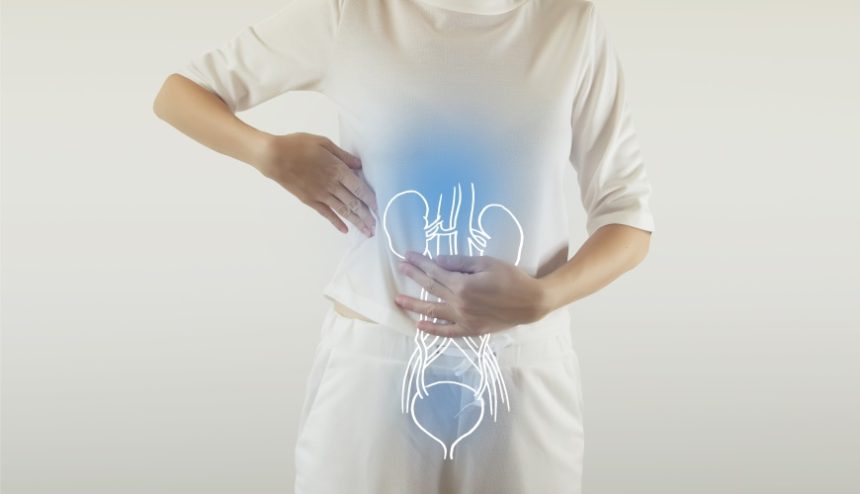By Erin R. Dahlke, M.D., Family Medicine
A urinary tract infection (UTI) can occur in the kidneys, ureters, bladder, and urethra—any part of the urinary system. A UTI can affect anyone. Women get UTIs more frequently than men, and children are also susceptible to infection. UTIs are caused when bacteria enter through the urethra and multiply in the bladder. Women’s UTIs usually affect the bladder and urethra.
Symptoms include:
- Persistent urge to urinate or passing small amounts frequently
- Burning sensation when urinating
- Cloudy urine
- Blood in the urine (red, pink, or brownish)
- Strong-smelling urine
- Pelvic pain
A UTI in the bladder is painful. However, if it moves to the kidneys, the symptoms become more severe, including fever, chills, nausea, or vomiting. Life-threatening sepsis could also occur if the UTI moves to the kidneys. With sepsis, the body responds to an infection by damaging tissues and causing organs to function poorly or abnormally. If it progresses to septic shock, blood pressure drops, leading to more complications and hospitalization.
Preventing UTIs:
- Drink liquids, especially water, to dilute the urine. This allows bacteria to be flushed out.
- Drink cranberry juice. Studies do not definitely say it works, but it can’t hurt!
- Wipe front to back to prevent bacteria from spreading.
- Drink a glass of water and empty your bladder after intercourse to flush bacteria.
- Don’t use deodorant sprays, douches, or powders—they can irritate the urethra.
- Diaphragms or some condoms can lead to bacterial growth. Discuss this with your doctor or gynecologist if this appears to be the culprit.
If not treated, UTIs could reoccur, cause kidney damage, and increase the risk of low birth weight or preemies for pregnant women. Because the types, locations, and symptoms of UTI vary, it’s important to see your doctor if you have any symptoms. UTIs respond well when treated with antibiotics, especially when caught early.


